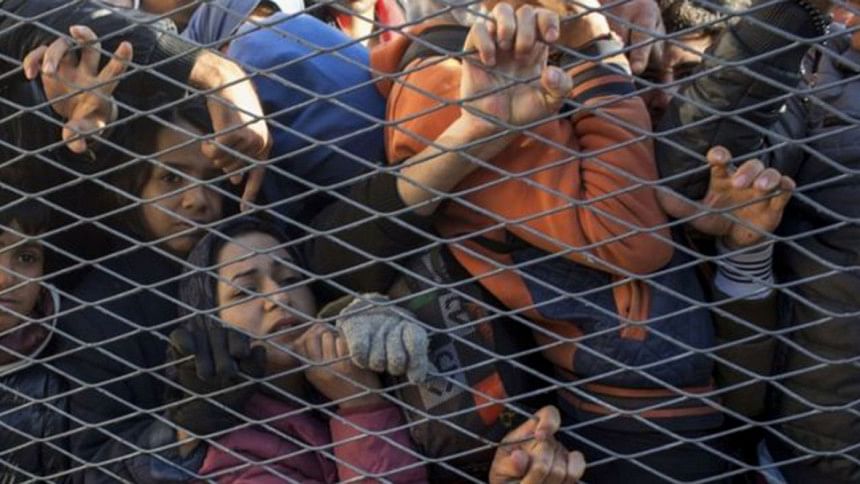Migrant crisis: EU splits exposed as summit looms

Splits within the EU on the relocation of 120,000 migrants have been further exposed as leaders gather for an emergency meeting in Brussels.
Slovakia is launching a legal challenge to mandatory quotas that were passed in a majority vote on Tuesday.
Hungary's PM defended its "democratic rights" and proposed a radical budgetary revamp to raise funds.
The summit will focus on tightening EU borders and aiding neighbours of Syria, from where many migrants come.
European Council President Donald Tusk called for "a concrete plan" to be agreed on Wednesday that would address how to secure the EU's external borders, "in place of the arguments and the chaos we have witnessed in the past weeks".
Countries such as Turkey, Egypt, Jordan and Lebanon, he said, "are expecting our help to solve their refugee problems without thinking about how they can help us".
Ahead of the summit on Wednesday, the European Commission set out proposals for managing the refugee crisis. They include:
--Rolling out support teams to migrant hotspots
--Restoring free movement in the Schengen zone, where a number of members have recently introduced border controls
--The issuing of warnings to 19 member states for failing to follow asylum procedures
--A proposal of an additional €1.7bn ($1.9bn; £1.24bn) in funds to tackle the crisis - €1bn would go to help Turkey, the rest to aid agencies and asylum, police and border organisations
The UK has opted against taking part in the relocation scheme and has its own plan to resettle migrants directly from Syrian refugee camps.
The scale of the problem was highlighted again on Wednesday when Croatia revealed that 44,000 migrants - including 8,750 on Tuesday - had arrived there since Hungary completed a fence along its border with Serbia last week.
In a rare move for an issue involving national sovereignty, EU interior ministers approved the resettlement scheme by majority vote rather than unanimous approval.
EU Migration and Home Affairs Commissioner Dimitris Avramopoulos denied this was harmful to the EU, saying: "On the contrary, it is a victory for the EU and for all member states."
The deal will see thousands of migrants moved from Italy and Greece to other EU countries. A proposal to take 54,000 migrants from Hungary was dropped.
Finland abstained from the vote. Poland, which had originally opposed the proposal, voted for it. But the plan's opponents have lashed out.
--On Wednesday, Slovakia announced a legal challenge - PM Robert Fico said a charge would be filed at the European Court of Justice, adding that Slovakia would not implement the rule
--Czech President Milos Zeman said on Tuesday that "only the future will show what a mistake this was"
However, Czech PM Bohuslav Sobotka said on Wednesday it would not launch a court challenge, adding: "Europe must not fall apart on the migration crisis."
Romania said it could manage its allocation but President Klaus Iohannis insisted mandatory quotas were not the answer.
The UN has warned that the relocation alone would not be enough to stabilise the situation.
Close to 480,000 migrants have arrived in Europe by sea this year, and are now reaching European shores at a rate of nearly 6,000 a day.

 For all latest news, follow The Daily Star's Google News channel.
For all latest news, follow The Daily Star's Google News channel. 



Comments